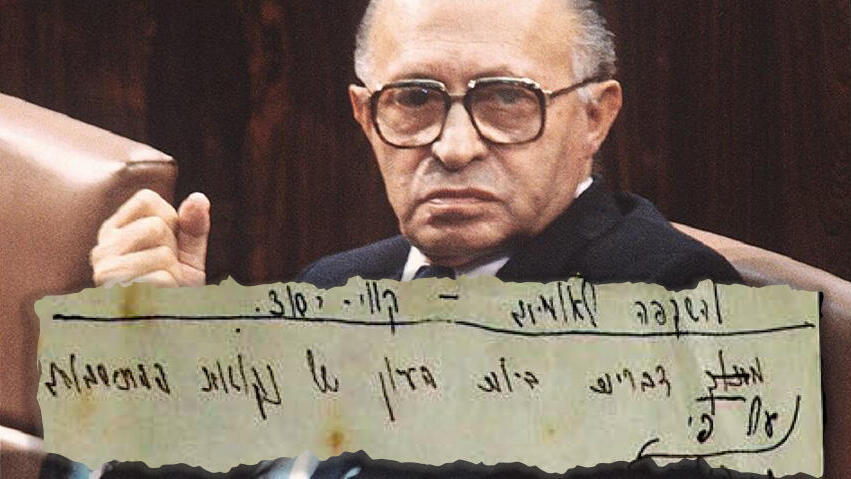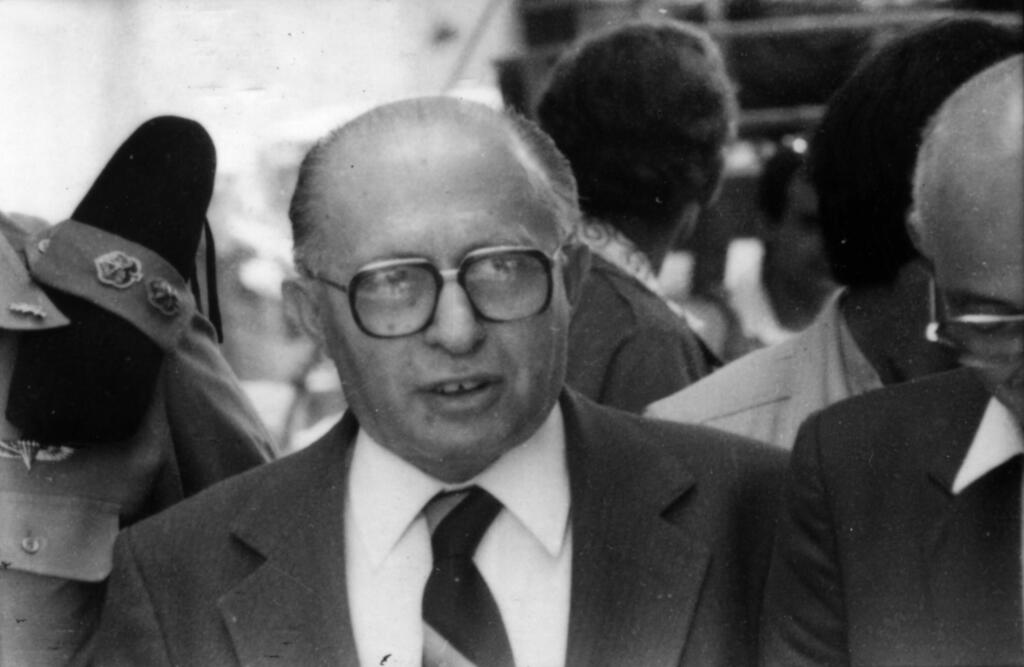Getting your Trinity Audio player ready...
A collection of previously unseen documents, letters and articles written by former Prime Minister Menachem Begin will be made public next week, coinciding with the 33rd anniversary of his death.
Among the handwritten papers is a document outlining Begin’s views on human rights, the need for a constitution and the tension between the judiciary and the legislature.
In 1952, Begin wrote a 65-page paper titled A Personal View, A National View and Basic Principles. Due to austerity measures in the young state of Israel, he drafted it on discarded rolls of paper from a printing press.
“There is no justice without courts,” Begin wrote. “Justices are but flesh and blood and may make mistakes, be bribed or afraid, but the determinative role of the court in our society is not the human weaknesses of any particular judge but the ‘psychological position’ given to that institution and those who sit in judgment.” He argued that both the judiciary and authorities must uphold the courts’ complete independence.
Get the Ynetnews app on your smartphone: Google Play: https://bit.ly/4eJ37pE | Apple App Store: https://bit.ly/3ZL7iNv
Herzl Makov, CEO of the Menachem Begin Heritage Center, described the documents as a reflection of Begin’s political philosophy and humility. “It is a sharp political analysis that distills Begin’s liberal-national worldview,” he said.
In the writings, Begin also addressed Israel’s territorial aspirations and the necessity of national might. He warned that Israel’s security depended on its power. “Anyone with eyes in his head knows that when we are strong, we will not be attacked by the Arabs, even without signed agreements. And if we are weak, our Arab enemies will rise to destroy us, even if such agreements are forged in diplomacy.”
Begin criticized Israel’s early leaders for conceding historical lands, lamenting that they agreed to establish the state without key biblical sites within its borders. “National leaders were found willing to sign, in the name of the people of Israel, that Jerusalem, Hebron, Bethlehem, Jericho, Nablus and all the good land east of the Jordan would not be ours. Is there a national-historic crime equal to this?”




